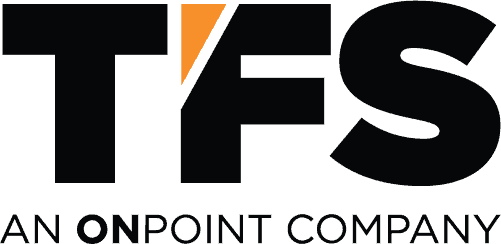 There’s no question that every company is reeling from supply chain issues right now. Lead times on equipment have quadrupled, even quintupled. What used to take two or three months can now take more than a year—or even two.
There’s no question that every company is reeling from supply chain issues right now. Lead times on equipment have quadrupled, even quintupled. What used to take two or three months can now take more than a year—or even two.
There are many reasons for that, but the bad news is that most estimates say that the supply chain is likely to remain strained for at least another year, if not longer.
The good news is that there is something you can do about it: work with a fleet manager.
Even fleet managers can’t perform miracles in times like these, but their strategic approach can shave months off your lift orders, help optimize your current assets, and build a roadmap that helps you weather this supply chain storm.
If you’re saying “But I already have a fleet manager and I haven’t seen these amazing results,” that’s because the title is often misused.
Many companies utilize a “fleet manager” who is, in actuality, an admin person who organizes RFPs and signs off on leases from each facility. This keeps things moving, but rarely do these team members have the data they need to help the business benchmark and make data-driven decisions to improve material handling operations. In short, this results in competing interests; decisions favor either the facility decision-makers, which provides radically different outcomes per facility, or there is a corporate-level contract that can’t adequately meet the unique needs of each facility.
That’s an issue even in ideal times, but when supply chain disruptions are causing lead time issues for parts and equipment, the cheapest option may not be shipping for two years. That’s a big problem.
At TFS, we are deep believers in fleet managers who are armed with operational, cost, and safety data so that they can provide strategic direction across the network. During the supply chain crunch, you also need advisors who are able to minimize asset lead times and provide out-of-the-box solutions that ensure you don’t have a hiccup in facility operations.
So, what should you look for in a fleet manager? Here are 10 abilities that we believe define a true fleet manager:
1. Taking a holistic view – Even companies with strong data collection often have no one designated to examine it from an enterprise level. This means the data is very segmented and there’s often a lack of communication between various facilities. This results in a fragmented view of the fleet, making the decision-making process specific to each separate facility. For example, one facility may be buying a certain type of lift that’s sitting untouched at another facility. A fleet manager solves this segmentation by looking at “the big picture,” enabling optimized purchasing decisions and a strategic approach that considers all facilities and corporate objectives.
2. Optimizing financing – For your company to truly gain an advantage, especially in a supply chain shortage, a fleet manager needs to have a deep view of financing options. A fleet manager should be able to weigh options against needs and lead time, but should also optimize lease structures, consider unique maintenance options, alternative equipment options, help negotiate better terms, and manage vendors. If your company owns forklifts, the fleet manager should have at their fingertips total asset cost (book value, age, cost of maintenance, etc.) versus the total cost of new, improved equipment.
3. Strategizing interim solutions – You used to be able to pick up the phone and get a same-day rental, but that’s no longer the case. Just-in-time options like rentals or buying used equipment are becoming increasingly scarce. That’s why thoughtful interim solutions are more important than ever.
Fleet managers should have several strategies at their disposal. As an example, TFS is working with a Fortune 500 food and beverage company with 300 well-aged forklifts. They need replacing immediately, but there is close to an 18-month lead time on new equipment. That’s why we are implementing a bridge program: equipment refurbishment with financing and a GuaranteedPOWER® system to ensure assets will deliver the uptime needed while the customer waits on new equipment.
4. Real-time asset inventories – One of the most important things a fleet manager can do is conduct an inventory of the company’s assets and maintain ongoing records. Even the biggest companies lose sight of what assets they have and where, which means they can’t be strategic in terms of redistributing the fleet and building a roadmap. And remember the discussion about interim assets in the previous bullet point? TFS has surveyed facilities and found years-old rentals that companies don’t even realize they’re still paying for.
5. Designing and implementing PM programs – This is one of the most important measures you can take to prolong equipment life, and it becomes even more crucial during a supply chain shortage. The good news is that data shows that high-velocity facilities can max out at four per year, but a PM program is crucial to prolonging existing equipment life and, consequently, successful uptime and improved safety. The issue is that PMs often fall by the wayside unless a fleet manager is ensuring proactive management and tackling the maintenance spend.
An important part of PM programs is managing vendors. When maintenance is even more critical in terms of facility uptime, someone needs to ensure that work has been performed per OSHA requirements and that vendors are charging the right rates. For example, a fleet manager should be able to make strategic recommendations about service provider options in your area and provide national benchmarks.
6. Prolonging asset lifespans – Without a true fleet manager, most companies’ assets remain static. A fleet manager can prolong the life of equipment by making strategic recommendations and taking action. For example, most companies are not rotating assets based on production schedules of the equipment to ensure equal usage and actively monitoring asset lifespans versus maintenance costs.
7. Data-driven actions – Are you collecting asset-prolonging data? Is anyone using that data to take action to optimize your assets and facilities? For example, do you have cost and productivity benchmarks across your facilities? And can you compare those to the marketplace quickly to drive simple replacement, repair, or refurbishment decisions?
8. Maintaining brand independence – If your company exclusively works with OEMs, chances are that you’re tied to certain brands. While that’s never ideal, it becomes more of an issue when the supply chain is experiencing issues, because you don’t have the choices you need to beat tough lead time issues. A good fleet manager should be “brand independent” to maximize your company’s potential assets and lower asset lead time.
9. Focusing on your company’s core business – Americans are having more goods delivered to their home than ever before—which puts even more hardship on an already-snarled supply chain. (For more of a breakdown, check out our newsletter.) That means operations execs are putting out fires every day to meet delivery and inventory commitments, while finance grapples with rising shipping costs and bloated inventories. A fleet manager should take the material handling equipment load off everyone else’s plate, giving them time to focus on their core business like demand-sensing, on-time deliveries, and channel management.
10. Developing and using roadmaps now – It’s hard to look ahead when you’re scrambling to get through each day, but a fleet manager can and should be building a roadmap and taking action in a few areas now, so that when we emerge from the supply chain shortage in a year or two, your company can continue moving steadily towards the most optimized and efficient fleet possible.
As you can probably tell, at TFS, we’re strong believers in fleet management in even the best of times. That’s why we’ve structured our own business to provide that service to all our customers.
However, with the perfect storm of supply chain stressors, the pandemic, and ever-growing consumer demand, these are definitely not the best of times for fleet management. That makes a true fleet manager position even more important.

